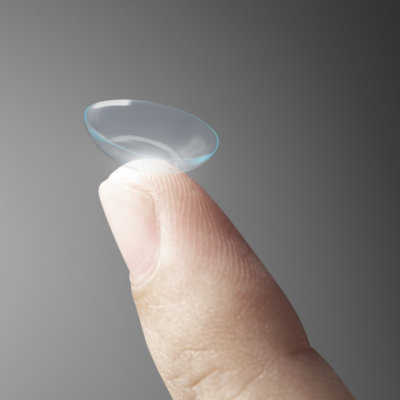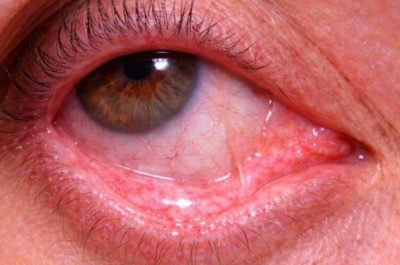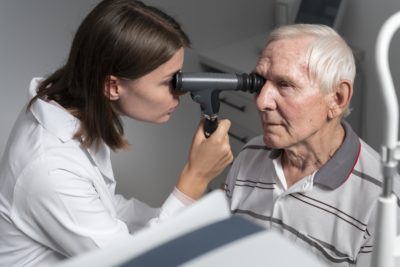Cataracts remain one of the leading causes of reversible blindness worldwide, particularly among older adults. With surgery as the most effective treatment, the role of nurses is critical in preparing, guiding, and supporting patients throughout their journey.
A well-structured nursing care plan for cataract not only addresses physical recovery but also ensures emotional support, patient education, and long-term safety and well-being. This guide outlines how nurses can deliver holistic care for cataract patients in 2025.
Cataracts Explained and Why Care Plans Matter
What Is a Cataract and How Does It Affect Vision?
A cataract is a clouding of the natural lens of the eye, causing blurred or dimmed vision. Patients often describe it as looking through a foggy window.
As cataracts worsen, everyday tasks like reading, driving, and recognising faces become difficult. Nurses focus on creating an individualised nursing diagnosis for cataract that addresses vision impairment, fall risk, and patient knowledge gaps, forming the foundation of care.
Why Do Cataract Patients Need Special Nursing Care?
Cataract patients require tailored care because of their vulnerability to anxiety, confusion about treatment, and risk of accidents due to poor vision.
Nurses play a crucial role in preparing patients for surgery, monitoring their postoperative healing, and educating them about safety. Effective nursing management of cataracts ensures patients recover well, minimise risks, and gain confidence in their treatment journey.
What Do We Want to Achieve with a Cataract Care Plan?
The primary goal of a nursing care plan for cataracts is to restore safe, independent living and improve quality of life. Objectives include promoting visual recovery, preventing complications, managing pain, reducing anxiety, and improving knowledge.
Nurses also reinforce confidence by guiding patients through both preoperative nursing care for cataract surgery and postoperative nursing care plan for cataract. This helps ensure a smooth and safe recovery for patients.
Common Problems Addressed in Cataract Patients
Impaired Vision Because of Cloudy Lenses
The most common issue in patients is blurred or cloudy vision, which impacts daily activities. Nurses must prepare a clear nursing diagnosis for cataract that addresses visual limitations, patient safety, and independence during the waiting period and recovery from surgery.
Preventing Accidents Due to Poor Sight
Falls and injuries are a major risk for cataract patients, especially older adults. Nurses must integrate safety strategies such as guiding mobility, ensuring well-lit environments, and involving caregivers. These steps form part of the cataract nursing interventions essential to prevent complications.
Lack of Knowledge About Cataracts and Surgery
Many patients are unaware of how cataract surgery works or what the recovery process entails. Providing structured health education for cataract patients ensures they understand the procedure, aftercare, and the importance of follow-up visits. Knowledge reduces anxiety and encourages treatment adherence.
Worry and Fear About Vision Loss or Surgery
Emotional concerns are common among patients. Nurses provide reassurance through clear explanations and continuous support. Addressing worry forms part of the nursing management of cataract, helping patients feel prepared and confident about the surgery and the expected improvement in their sight.
Step‑by‑Step Nursing Care for Cataract Patients
Before Surgery
Preoperative nursing care for cataract surgery includes educating patients about the surgical process, explaining the use of anaesthetic eye drops, and preparing them emotionally. Nurses reduce anxiety through reassurance and obtain informed consent. They also ensure pre-surgery instructions are followed, including fasting and medication adjustments.
After Surgery
Postoperative nursing care plan for cataract involves close monitoring for pain, redness, swelling, or signs of infection. Nurses explain activity restrictions, such as avoiding heavy lifting, and guide patients on the correct use of eye drops. They also provide pain relief and ensure that follow-up appointments are maintained for safe healing.
Teaching Patients About Cataract Care
How to Look After Your Eyes After Surgery
Patients must be taught proper hygiene and protection after cataract surgery. Instructions include avoiding rubbing the eyes, wearing protective shields, and using medications as prescribed. This falls under health education for cataract patients, ensuring compliance and preventing postoperative complications.
Lifestyle Tips and Safety at Home
Lifestyle advice is part of the nursing management of cataract. Patients are guided to avoid strenuous activities, maintain a clean environment, and reduce fall risks by improving lighting at home. Nurses also highlight the importance of healthy routines for overall eye health.
Using Eye Drops and Other Medicines Correctly
Incorrect use of eye drops is common and can compromise the recovery process. Nurses demonstrate proper technique, stress dosage schedules, and check understanding. These simple yet vital cataract nursing interventions ensure that prescribed medication works effectively and prevents complications.
The Role of Family and Caregivers
Family members and caregivers are vital in supporting recovery. They assist patients with mobility, daily activities like bathing, and medication adherence. Nurses encourage caregiver involvement to ensure continuity of care, monitor healing, and provide emotional reassurance. Including families strengthens the overall nursing care plan for cataracts.
Home Nursing Care for Cataract Patients
Home care extends beyond hospital discharge. Nurses or caregivers monitor healing, prevent falls, and assist older patients in maintaining independence. Supporting mobility, ensuring correct medication use, and encouraging healthy lifestyle practices are part of effective nursing management of cataract at home.
Conclusion
An effective nursing care plan for cataracts is not just about surgery. It is about empowering patients to live independently, safely, and confidently.
Through well-structured nursing diagnosis for cataract, timely cataract nursing interventions, and thorough health education for cataract patients, nurses ensure faster recovery and better long-term outcomes. By combining clinical expertise with compassionate care, nursing professionals play a central role in helping cataract patients regain their vision and quality of life in 2025.










Followed these tips and it gave me a smooth recovery.